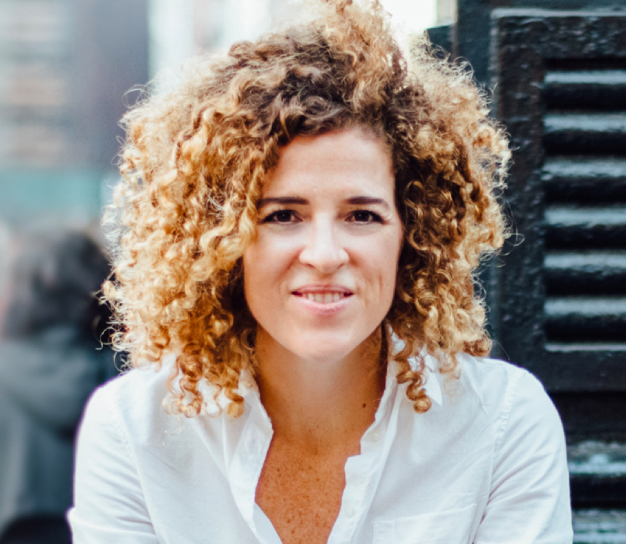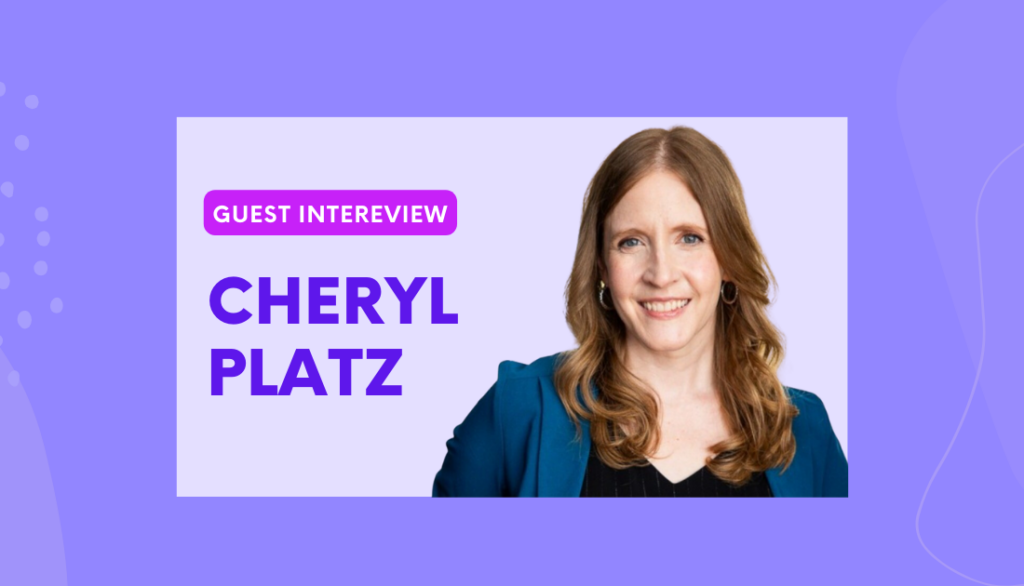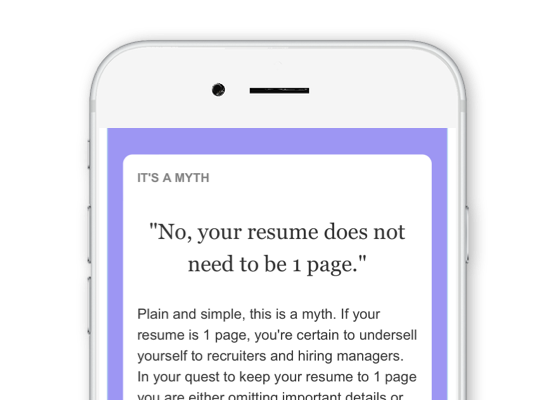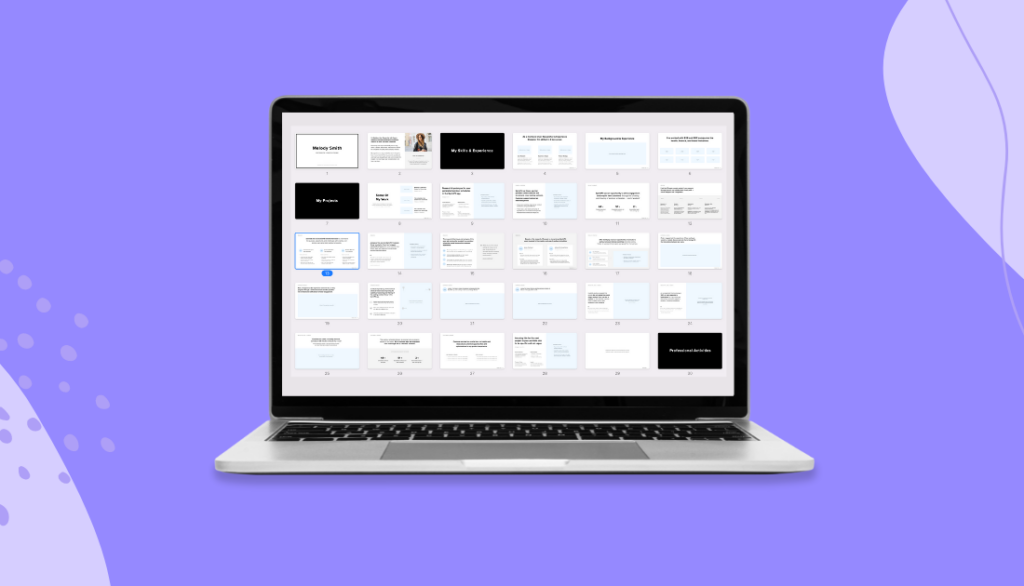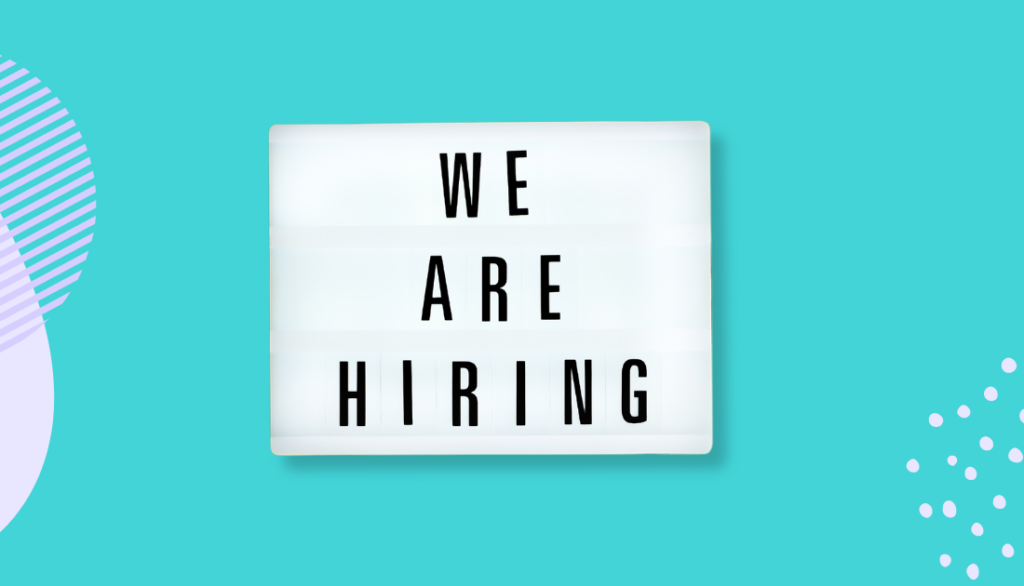Episode 67
How to deal with rejection in your job search
22 min listen
Episode 25
22 min listen

Listen to the Episode
Episode Summary
In the final episode of our job search series, we tackle the topic of dealing with rejection. Let’s face it, rejection is a common part of the job search journey. But here’s the thing: rejection doesn’t define your worth as a professional. In this episode of the Career Strategy Podcast, we explore practical ways to handle rejection and turn it into an opportunity for growth.
If you’re applying to jobs but not getting any interviews, it’s time to take a closer look at your resume, LinkedIn profile, and portfolio. Are they sending a strong first impression? Tailoring your application materials and reaching out to hiring managers directly can make all the difference.
But what about when you do land interviews, only to face rejection afterward? Don’t lose heart. Something is working right because you got that interview in the first place. Reflect on your interview skills and how you communicate your experiences and projects. Are you bringing the receipts and telling engaging stories?
And if you make it far in the interview process but still don’t get the job offer, don’t take it personally. There are countless reasons why a company may go in a different direction. Stay resilient and keep striving for your career goals. Tune in to this episode for valuable insights on overcoming rejection and taking control of your career.
Create your dream career, and life
- Book a free Career Strategy Call to learn how we can help you
- Get our free Career Roadmap to help you navigate your career
- Check out Career Strategy Lab, our 3-month career coaching program
Watch
Discussion Questions About The Episode
- How do you personally define rejection in the context of a job search? Is it purely about not getting the job, or does it extend to other aspects of the process?
- Reflecting on your own job search experiences, how have you typically dealt with rejection in the past? Has your approach to handling rejection evolved over time?
- In the episode, Sarah emphasizes the importance of first impressions, both through your career materials (resume, LinkedIn profile, portfolio) and initial interactions with potential employers. How can you ensure that your first impression accurately represents your skills and aligns with the job description?
- How open are you to receiving feedback, and how can you leverage that feedback to improve your chances of success in the job search?
- How can you enhance your interview skills to engage the interviewer and showcase your strengths beyond a simple checklist of tasks?
Episode Notes & Links
This episode is part of a 5 part series about the job search, check out the other episodes in the series:
- 🔎 Ep 21: The # 1 thing to do before you apply for a job
- 👥 Ep 22: Why you should prioritize people over platforms in your job search
- 🎲 Ep 23: Why you should NOT play the numbers game in your job search
- 🕵🏻♀️ Ep 24: How to research a company before you apply
- 😞 Ep 25: How to deal with rejection in your job search
Episode Transcript
Sarah Doody [00:00:00]: Hey there, I’m Sarah Doody, host of the Career Strategy Podcast. Many professionals are seeking more impact, flexibility, growth, and let’s face it, getting paid what they’re worth. But how do you unlock this in your career? It starts with strategy. I’m taking you behind the scenes of what’s working for my career coaching clients. You’ll hear strategies and actionable, yet sometimes against the grain advice for how you can be the CEO of your career. And stop dreading Mondays. Ready to level up your career? Let’s get after it. Welcome back to another episode of the Career Strategy Podcast and today is our last episode in the series.
Sarah Doody [00:00:47]: We’ve been doing all about the job search. So today we’ll be talking about how to deal with rejection in your job search, which is inevitable for most people. Now, already in this series about the job search, we covered in episode 21 the number one thing to do before you apply for a job. In episode 22, we covered why it’s so important to prioritize people over platforms in your job search. Then in episode 23, we talked about why you absolutely should not play the numbers game in your job search. And in episode 24, we gave you some strategies for how to research company culture before you ever apply. So let’s jump right in to how to deal with rejection in your job search. And like I said, for most people, rejection is just an inevitable part of the job search.
Sarah Doody [00:01:48]: It’s probably going to happen. Now, that’s not to diminish the impact that rejection can have, but I think one of the first things we need to do to start to deal with it is just to accept that it’s kind of a part of life. And it’s not a rejection of your self worth or value as a person, as an individual. This is simply a matter of you not being aligned with whatever that company is looking for. Or maybe your skills and experience are aligned, but someone has an edge that you don’t. So first of all, just remember that this is not a reflection of your worth as a human or as an individual. But when it comes to getting rejected in the job search, one of the things that you need to be really mindful about is what point did you get rejected? Because that can lead you to some clues that might help you go back and recognize various parts of your career, materials that you could optimize, maybe your interview skills, et cetera. So let’s start at kind of the first kind of possible place where you would get rejected, which could be you don’t even get interviews, right? So you are applying to jobs and you’re not getting interviews.
Sarah Doody [00:03:19]: Okay, so what does that mean? You get one of the kind of automatic rejections or maybe a human really emails you to say, hey, we received your application, we’re not moving forward. Okay? What you need to do is think something is not creating a strong enough first impression, right? So if we break this down, that is likely your resume, your LinkedIn profile, information you typed in on the application or potentially your portfolio if you happen to have one. So if you’re applying to jobs and not getting interviews, it’s like that some combination of those materials is not sending a strong enough first impression or it’s not aligned with what is in that job description for the role you are applying to. So the first thing that you should really do is go back and pull up the job description in one window on your computer. And then pull up your resume and your LinkedIn profile and your portfolio in other windows. And kind of take a hard look and ask yourself or maybe a friend or someone in your industry to say, hey, here’s this job description I applied or the description of the job I applied to. And here are my materials. Like, do you see a disconnect? You might be surprised at what you find out.
Sarah Doody [00:04:44]: And I would also say that if you applied to the job, but you didn’t take the time to tailor your resume to that job or to write a cover letter, or if you knew who the hiring manager was, or someone on the team. If you didn’t take the time to kind of pitch yourself in a short message or email to them, maybe you might want to do that in the future. Because sometimes those things can make or break whether or not you get interviews. And you have to put yourself in the shoes of these people hiring, right, especially doing that early vetting, early in the hiring process, sometimes they’re going through 100, 200, 400 applicants. And so that first impression matters. The sentence at the top of your resume describing who you are and what you do could make or break whether or not you get an interview. Same thing with your LinkedIn headline and your portfolio. So that’s kind of area number one to think about if you are applying to jobs and not getting interviews and getting those rejections really early on in the process.
Sarah Doody [00:05:55]: Now, what happens if you are getting rejection after going to some interviews, right, and you’re not making it to that next round? So as frustrating as it can be, I want you to remember and recognize that something is working right. You’re doing something right because you got an interview. So you should reflect on the fact that something in your resume, your LinkedIn profile, that cover letter you hopefully wrote, your portfolio, whatever it was, something in that initial set of career materials and people’s interactions with you were strong enough and communicated to them clearly that you seemed like a good enough match to be interviewed. So please don’t discount what is working in your job search. But if you’re not advancing to those next rounds of interviews, then where might be the disconnect. One of the first places that I would really start investigating is taking a hard look at your interview skills and asking yourself after each interview, especially in the future interviews you do, how did that go? Do I really feel like I was clear on my skills and experience? Did I have examples or bring the receipts from previous projects I’ve worked on and how those skills might come into play in this job that I’m applying to? How were you at describing and talking about the projects you’ve worked on? Were you just kind of rambling and just going through the steps of, first I did this, then I did that, then we did this? Or were you kind of telling us a little bit more than just a checklist of what you did, but letting us behind the scenes and saying, well, we did this research and we wanted to learn X, Y and Z, therefore we chose this research method and based on the research, we then learned these amazing insights. And here’s this quote that still stands out to me months after I did the research. And then here’s how this research really informed kind of the next thing that the team did that’s a lot more interesting and engaging than just kind of like Robo going through a checklist of what you did in your interview.
Sarah Doody [00:08:26]: So if you are applying to jobs, getting interviews, but getting those rejections kind of after you’ve gone at least one or two interviews, really, really take a hard look at your interview skills and your ability to present or talk about the projects that you have worked on. And then another thing to think about. So you’re getting interviews, you’re making it further, further in the process, and then you don’t get the job offer. Let’s be real, that is not a good feeling. It’s a letdown for even the people with the best kind of nerves of steel, right? It’s still going to sting a little or a lot. But here’s the thing. There are so many reasons why you may not be extended a job offer. And sometimes you’ll never know.
Sarah Doody [00:09:19]: Sometimes it could be that the company’s budget gets cut and they can no longer hire anyone. Sometimes companies priorities change and so that person that they thought they needed is no longer needed, right? Sometimes they end up hiring someone internally. Sometimes it’s just a matter of you tick all the boxes. You really are an awesome, qualified candidate, but someone else has an edge. And as an example of what I mean by someone having an edge, think of it like this. Imagine you’re applying to a job in the insurance space and someone else also applies. And you have never worked in insurance before, specifically health insurance. Let’s be really specific.
Sarah Doody [00:10:09]: And the other person has maybe spent five years in the health insurance space and other health related kind of products and services. You both have all the exact skills, qualifications, et cetera. The only difference is that that person had boots on the ground experience in that industry and maybe that wasn’t on the job description. But at the end of the day, when it came down to extending offers, that company went with that person that already had that industry experience. So don’t feel like a rejection is an indication that you are not qualified for the types of jobs you’re applying to that it means maybe you should be applying to jobs with mid level instead of senior, for example. Don’t start to second guess or doubt yourself as a professional because there can be so many reasons why someone else has extended an offer and you are not. Now some other things to consider because we can’t control what the experience and skills and qualifications of other candidates are, right? So we can’t worry about those things. What I want you to spend your time and energy on is reflecting on the entire interview process and thinking is there anything that in hindsight I know I should have done but I just didn’t because maybe I didn’t know any better or maybe I cut corners.
Sarah Doody [00:11:42]: So things where a lot of people kind of cut corners or decide not to do follow ups, it might seem old school, but a simple email follow up after every interview or interaction can help you stay top of mind as a candidate. It also gives you an opportunity to remind people or highlight specific points in your previous experience or education that really connect the dots between you and what that company is looking for. So follow ups are really key. Cover letters can still be very valuable. Are you doing them? If not, why aren’t you? Don’t skip over cover letters. They can sometimes make or break either getting that first interview to begin with or like I said, reminding people of kind of things in your experience that maybe would not be clear unless they rifled through your entire resume and your entire LinkedIn, et cetera. And the other thing to be really mindful of is before you ever apply to a job, it can be very valuable to be building relationships with people at that company. Now, this does not have to mean endless zoom dates and coffee chats and stuff like that.
Sarah Doody [00:13:04]: This can be as simple as if, you know, you want to apply to a job at, say, Delta Airlines, you want to get into design at Delta Airlines, okay, you should go and try and find people who work in that kind of area or department at Delta Airlines and maybe go give them a follow on LinkedIn. And why is this crucial? Because as you start to see their posts, you should then be kind of commenting and starting to have conversations with them. And then someday when you do apply to Delta Airlines, they might be someone in an interview or they might be someone you can reach out to after you apply to ask questions about the role. Or you could even ask them if they have a referral link that you could use to apply for the role. All of those things can really, really matter now, the one thing I really want you to remember after listening to this episode is to not let these rejections that come our way to cloud any positive things that may have happened during the interview process, right? So I know that initial email or phone call saying you’re not being considered or given an offer, that is not fun. However, don’t kind of fester on that, don’t focus on that. Don’t let that be the only thing you take away from this job interview process that you just went through. Chances are there are things that you can carry with you either lessons or even confidence building.
Sarah Doody [00:14:50]: Things like, I just had a conversation this morning with someone in my career coaching program and they said I was in final contention for this role. And after the last interview, I felt like it was the best interview I ever gave of my life. And I still don’t know if I have the job or not, but even if I don’t get it, that feeling of having given the best interview of my life, I’m going to take that confidence into future interviews for next time. So don’t forget and don’t look over the positive things that may have happened in your job search. Did you maybe feel like you had an awesome conversation with a recruiter or hiring manager or connect with someone that you might continue to stay in touch with? Maybe they were part of the interview process? Did you even learn something about yourself that you didn’t recognize before in terms of what you’re looking for in a role, in a company, in a culture? Sometimes you learn things in the interview process that make you realize, you know, I thought I wanted X, and now that I went through a few interviews with that company, it’s actually a blessing in disguise that I didn’t get an offer because if I had accepted that, I probably would have been miserable in two months. So take time to reflect on the kind of lessons or positive things that may have come after you. Let that dust settle of that rejection. Let’s be real.
Sarah Doody [00:16:24]: It’s part of life, but we don’t need to dwell on it and let rejection in our job search define us. And one of the really useful things and helpful things that I’ve seen be very valuable, especially for people in my career coaching program, is the value of not trying to process and navigate all of this alone. Right? There is such value in having a community. Whether that’s a program like my program that I run or just a small group of kind of inner circle people in your community or your life that you’re sharing these frustrations with, it’s not healthy to let all of these feelings and thoughts and speculations kind of just bubble up inside of us. We need time to think through them and to have people also help kind of reset our perspective. So if you are currently kind of operating in a silo in your job search, I really encourage you to find a community of either like minded people, like my community of career coaching clients, or people that you trust. In your life or in your career or from prior jobs you’ve had that you can share some of this with because they will be very helpful in reminding you that your worth as a professional and as a human is not tied up to the number of offers or rejections you get in your job. Sarah and lastly, I just want to remind you that success, we put this hyper focus of success being this cherry on the top, meaning getting hired, right? And we kind of idolize that.
Sarah Doody [00:18:17]: And of course, we all need jobs to have money to do our lives, et cetera. I’m obviously not discounting the desire to get hired, but as I said earlier, it’s so important to reflect on everything else because there’s so many other layers of things that we can learn and take away from every job search and every interview that we go through. Whether that’s more confidence, more connections, more knowledge. Like realizing that cover letters and follow ups might actually make a difference. So don’t beat yourself up too much and don’t focus too much on the kind of cherry on top version of success, because there is definitely opportunity to grow on a personal and professional level as well, beyond just growing your job title and your job salary. All right, so I know we covered a lot when it comes to rejection in the job search, so I want to just do a quick recap here. First of all, be very mindful about where the rejection is happening, at what stage is that happening in the job search, and ask yourself, are these clues that can lead me to things that I might need to work on so that you don’t kind of panic and start to go in all different directions? But like we said, if you’re applying to jobs and not getting interviews, there’s no need to go practice your interview skills if you’re not getting interviews yet. Instead, you probably need to focus on your resume, your portfolio LinkedIn profile, or even maybe rethinking the jobs you’re applying to, to begin with, right? Then, after every rejection, ask yourself and reflect, what can I learn about myself? What did I do? Well what would I do differently next time? And don’t let rejection cloud the positive things that may have happened, the relationships, the lessons, anything else that may have come.
Sarah Doody [00:20:31]: And I know it may take you a few weeks to be able to truly see these things, but I assure you there will probably be some lessons and positives that come out of these experience as well. And like I said, maybe it is a matter of realizing, you know what, if I had proceeded in that interview process and received an offer and accepted it, maybe that would not have been best for my career. And then finally find a community. Don’t go at your job search in a silo. Don’t try and process rejection alone. You need other people to help remind you of how awesome of a person and a candidate you are. And you need to also be in a community to learn from other people’s experiences and realize and remember that you are not the only person that’s happening to. And everyone else that’s been hired before you has probably faced rejection as well.
Sarah Doody [00:21:31]: So I hope that whatever stage you are at in your current, I don’t like that. So I hope this episode today has been helpful to you. And like I said, this is the last episode in our job search series. So if you are in the middle of your job search or have friends in their job search, you might want to pass this series on to them because there are now five episodes all about how to navigate different aspects of the job search, starting at episode 21. All right, have a great rest of your day and I will talk to you in a future episode. Thanks for listening to the Career Strategy podcast. Make sure to follow me. Sarah duty on Twitter, instagram.
Sarah Doody [00:22:18]: YouTube or LinkedIn? If anything in today’s episode resonated with you, I’d love to hear about it. Tag me on social media or send me a DM. And lastly, if you found this episode helpful, I’d really appreciate it if you could share it with a friend or give us a quick rating on Spotify or review on Apple podcasts. Catch you later.
